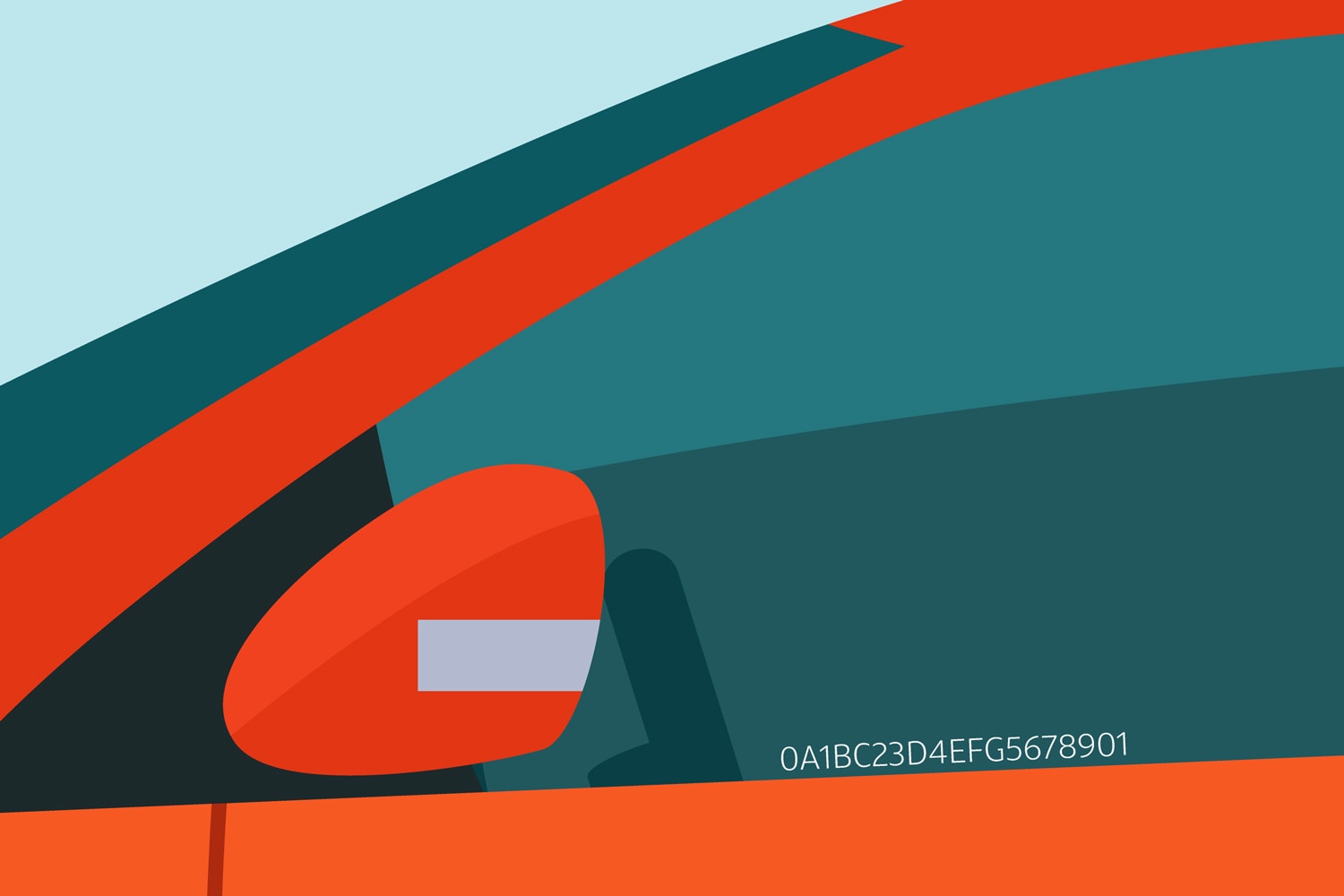What Is VIN Etching?
The process of VIN etching your vehicle's glass could help prevent theft and might even save you money on car insurance.
 Getty Images
Getty Images
Article QuickTakes:
As with many vehicle features and some simple technologies, the process of vehicle identification number (VIN) etching all of a vehicle's glass was born as a hedge against theft. Magnetic pellets in the ignition keys of GM cars in the 1980s, rolling codes for electronic key fobs, and uncopyable keys themselves were all measures against the same end — preventing theft. VIN etching a car's glass with the 17-digit, globally standardized VIN became a way to prevent the trade of stolen parts. If the glass has the original vehicle's VIN etched into it, a thief has a harder time re-selling those parts. VIN etching also became a small deterrent to potential thieves in the first place. While seemingly a clever plan, does VIN etching really work? The answer is yes, although it's not as simple as it seems.
What is VIN etching?
First, let's explore how it works. You can have your car VIN etched at a dealership, a repair shop, or body shop. It's done using either chemicals, a mechanical medium, or a laser and requires no more than an hour to complete. It does not obstruct your view or change the car's appearance, as the font size of the VIN etching is generally quite small. But many studies have shown it to drive away some thieves. If a thief aims to sell your stolen car, mismatched VINs between the car's actual VIN plate and the glass make it a far tougher sell, so the thief must replace all the glass (which is a royal pain for someone looking to turn a stolen car quickly without additional cost or hassle).
How Can I Get My Glass Etched?
The cost to VIN etch your glass varies depending on where you have it done. Dealerships may charge as much as $250 or even more, whereas do-it-yourself kits can cost $20 to $30 online or at retailers like auto parts stores which can yield excellent results for a fraction of the cost. (These are usually kits that use chemicals, but handled safely and responsibly, they shouldn’t pose much danger.)
Some police departments support VIN etching to the extent that they might even offer it as a free service during public events or fund drives. Also, if you're a member of AAA, you can inquire with your local chapter about having them etch your glass, too. They actually offer the service to members and even non-members for a fee.
Do Some Homework Before You DIY
A number of insurance companies offer discounts to owners who VIN etch their cars, but this is where things get a little murky. Check with your insurance company before assuming you'll be charged less if you opt to VIN etch your car. Some insurers will require a form that certifies a professional did the etching in order to qualify for any discount, which obviously poses a problem for those who might be interested in doing it themselves with a DIY etching kit. And if your insurance company does offer a discount for VIN etching, it will only affect the comprehensive portion of your insurance, as that's the coverage invoked should you incur a loss.
Even if your insurance company offers no incentive for you to VIN etch your car's glass, you can still have that small measure of prevention by potentially warding off a thief.



